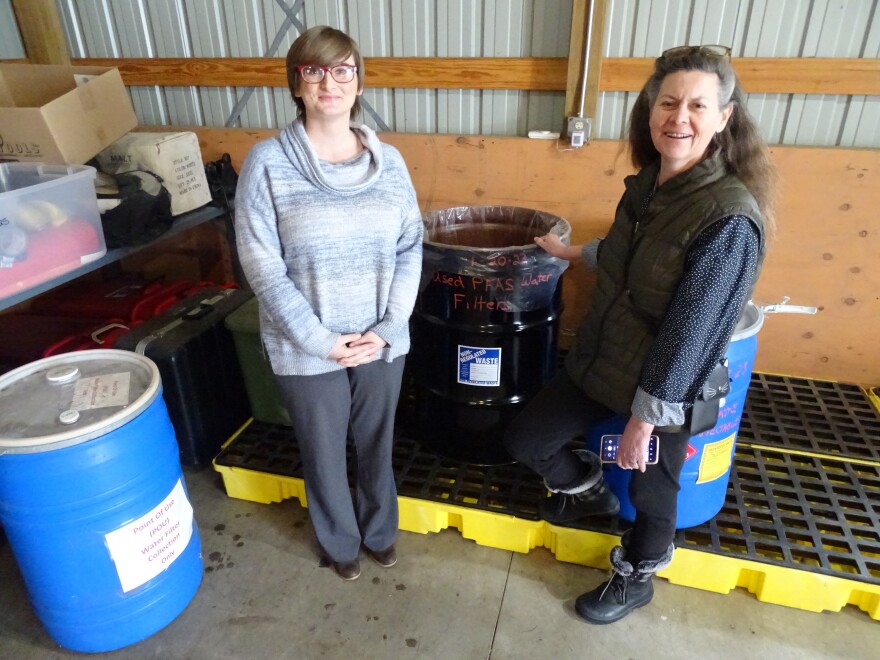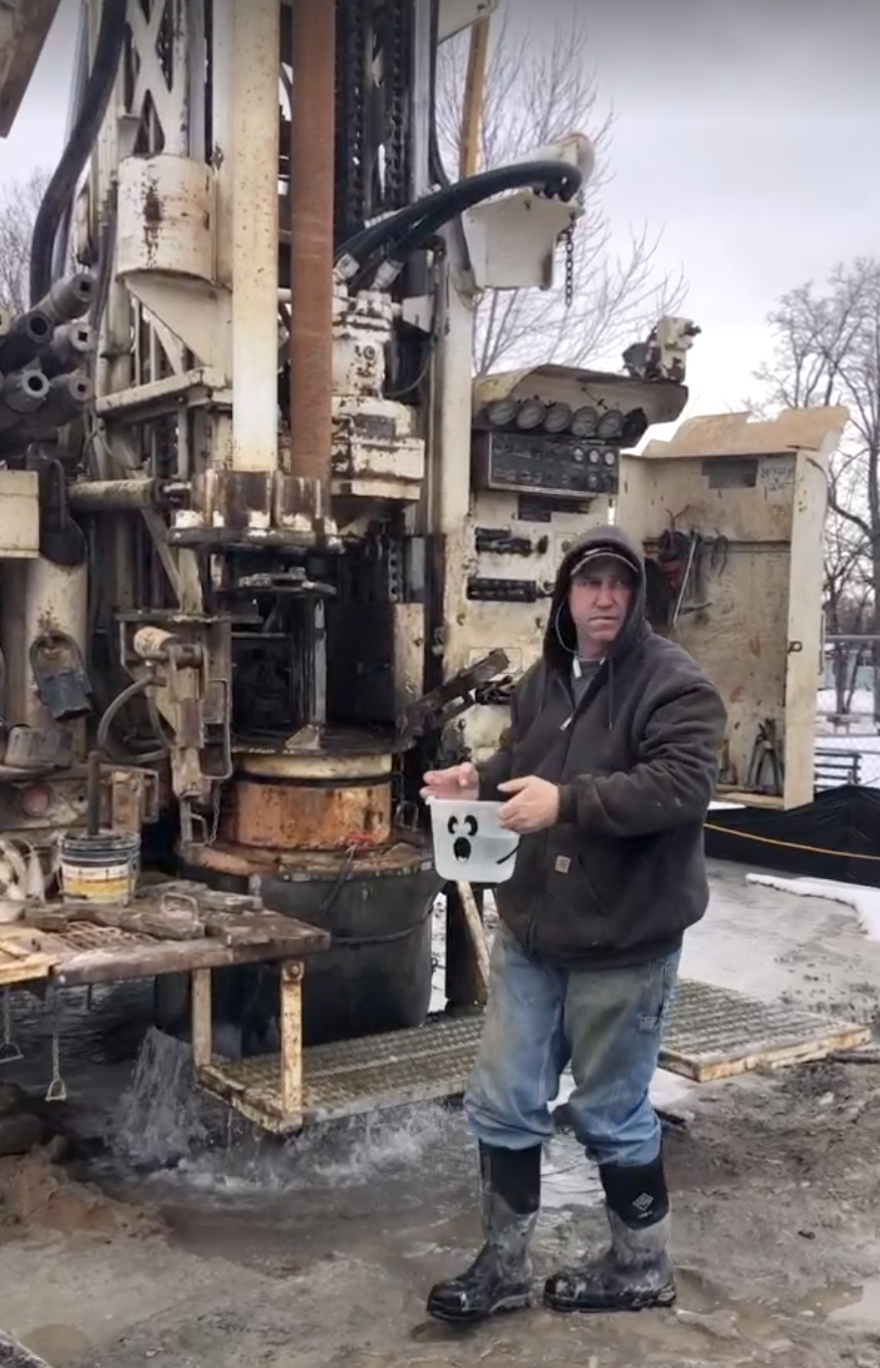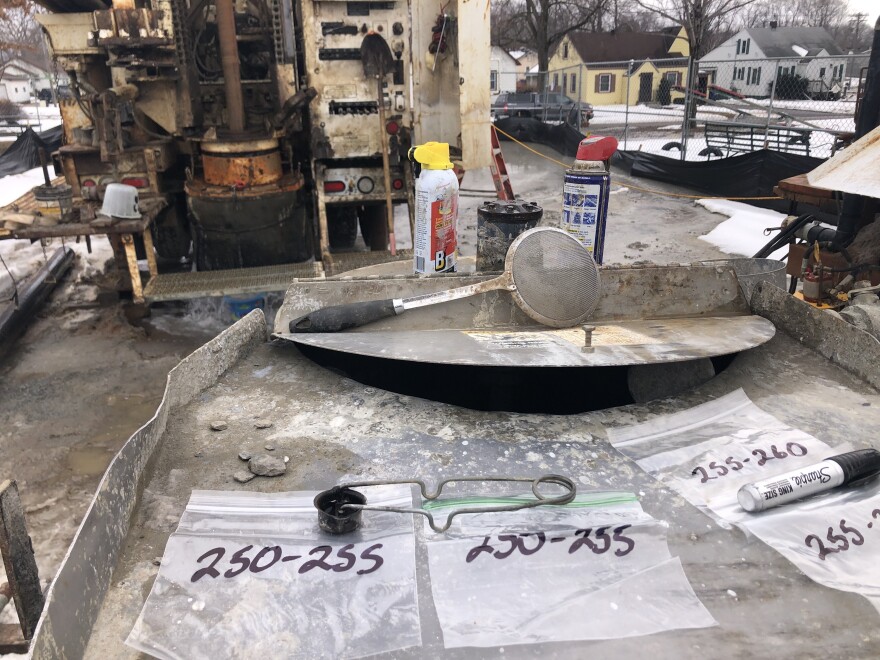In 2020 the small Town of Campbell in far western Wisconsin found out PFAS has contaminated its private gallonwells. The town isn't waiting for federal and state leaders to deal with the forever chemical. Campbell is working to secure a sustainable, safe water source for its residents.
The town is just few miles northwest of La Crosse. Its 1650 households are located on French Island. The Mississippi flows to its west, the Black River to its east.
Originally farmland, Campbell was incorporated as a town in 1850. Over the years, summer cottages gave way to year-round residents. Some work on the island, others commute to La Crosse.
Campbell resident Lee Donahue says her town has everything it needs: its own police and fire departments, a school, library and grocery store. Everything—that is—except a safe source of water.

Donahue, who serves on Campbell’s town board as health, education and welfare supervisor, says PFAS presented a crisis Campbell didn’t anticipate.
“I was appointed to the board Memorial Day of 2020. And roughly five months later, in October of that same year, our clerk got a call that said, ‘this is the city of La Crosse calling and you may have some contamination issues with PFAS,'" Donahue says.
The source of the PFAS is firefighting foam that’s been used since the 1970s at a small regional airport on the north end of French Island. The city of La Crosse owns the airport.

“The City of La Crosse is taking responsibility of a small neighborhood that is south of the airport, roughly about four or five blocks. We went to the DNR and said, it’s highly unlikely that water is only contaminated in this small area,” Donahue says. “The groundwater flows everywhere—how is it being constrained to this one neighborhood?”
To find out, Donahue and a handful of Campbell residents paid to have their own wells tested, “And what we discovered is that there was contamination on many more locations than this one small neighborhood. So we went back to the DNR and said, we want more testing. In roughly April of 2021 they did approximately 500 additional tests,” Donahue explains.

Ninety-seven percent of those private wells contained PFAS, some at alarmingly high levels. The Wisconsin Department of Health Services took notice and said, “We’re going to issue a health advisory, which is why we are entitled to a safe alternative interim source of water, which is bottled water,” Donahue says.
That means trucks deliver water by the five-gallon jug full to homes throughout Campbell every month.
Every private-well user in Campbell is covered. But Donahue says moving from the “interim” source of water to a permanent safe supply takes time.
“The city of La Crosse they are required to do certain things to determine the cause of contamination, remediation, and so forth and so on. That’s a process that plays out between the DNR and the city, so I kind of leave it into their ballpark,” Donahue says.
In the meantime, Donahue started investigating and networking to puzzle out what would be the best, safest water source for her city.
That’s led to what you’re hearing now, the sound of drilling in search of a new water supply.

Mike Nelson, a 4th generation well-digger, was called in. Last month he set up his 38-foot tall, 65,000-pound rig next to a tennis court and playground equipment in a small neighborhood park.
“And right now, we're just drilling. That's all we're doing. The air compressor blows air down the hole and blows all the water and drilling cuttings out. Water runs away. Just repeat, keep going,” Nelson says.
Nelson is drilling a test well far below the shallow aquifer Campbell residents have tapped into for their well water. Every 10 feet or so, he harvests samples and places them in what looks like a bucket you'd take to the beach. Geologists will look at the sandy, rocky stuff. Others will test the water.
Engineer Mike Davy's company is overseeing the project. He's confident that a clean and plentiful water source is waiting in the Mount Simon aquifer.
"This water is in the neighborhood of 50,000 years old. It's so old that the water can't be contaminated because there wouldn't have been any type of activity of people involved when this water originally entered the aquifer," Davy says.
Of course, Davy will continue testing the Mount Simon water to make sure it's contaminant-free.
Clean water can't come soon enough for Peter Davison.

He grew up fishing the waters you see beyond his childhood home in Campbell. His parents later passed the house on to Davison and his wife.
“We moved here and we intended to start a family. And one of the first things we had done was [to get] t the well tested. Specifically thinking about our future kids,” Davison says.
The Davison’s twins were born around the time Campbell learned about its PFAS problem. Their children were premature and spent their first 10 weeks in the hospital.
“One of the things associated with PFAS consumption in Utero is low birth weights—it’s premature births. It’s like oh man, we went through all that. And whether or not there’s a correlation, I emotionally understand what that’s like. And so I think about other parents who might have to go through this,” Davison says. “You don’t want anyone to ever have to deal with that.”
There’s a long and expensive road ahead.

The test well will cost roughly $200,000. The La Crosse County board stepped up to cover half and the town is covering balance with ARPA dollars. Campbell supervisor Lee Donahue says laying the pipes to deliver water to the community may cost 100 times that amount.
The town has started pulling together those dollars. “Last year we were awarded $1.6 million through Senator Baldwin and a congressional direct spending,” Donahue says.
She expects federal infrastructure funding, EPA’s clean and drinking water state revolving loan fund, and state assistance to cover the rest. If her determination makes a difference, the day will come for the Town of Campbell’s solution. “We’re going to solve this and we’re going to be better for it,” Donahue says.
Last week Donahue was in Washington D.C. along with other Great Lakes Coalition delegates to meet with Wisconsin’s members of Congress. You can believe she was laser focused on funding solutions for Campbell and other communities living with PFAS contamination.
_





